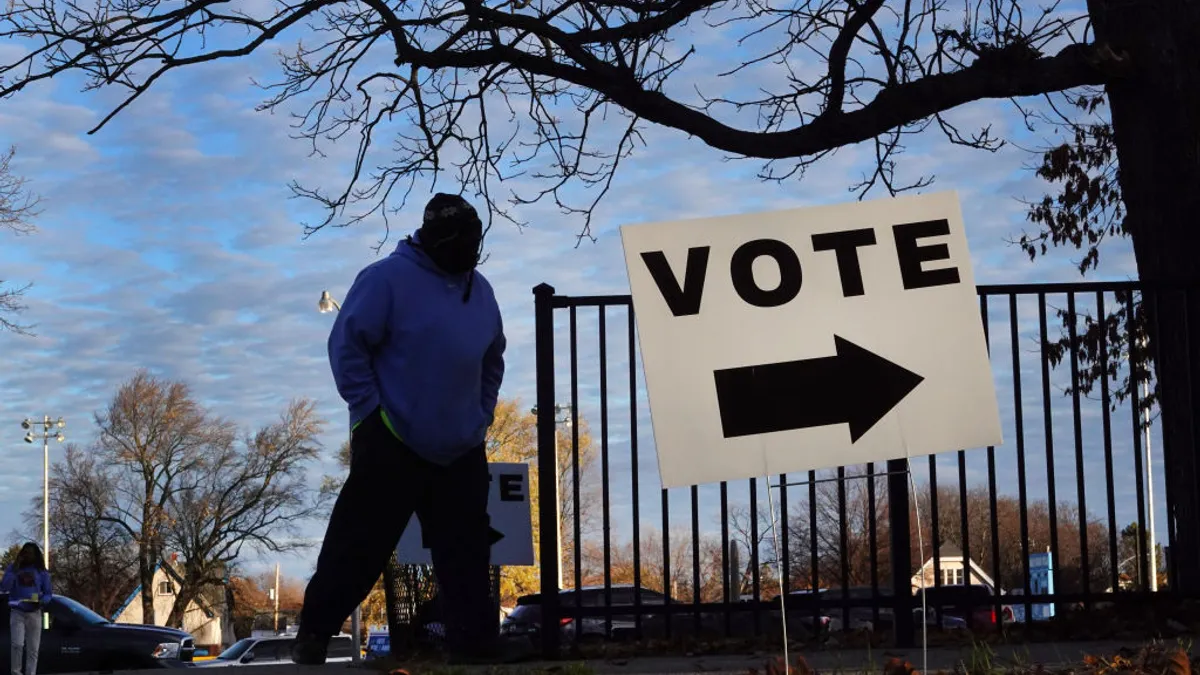Dive Brief:
-
Despite politically fraught education issues riddling the 2022 election cycle and voters riled up about K-12 issues, no elected state boards of education flipped parties in the most recent cycle, according to a post-election analysis released Thursday by the National Association of State Boards of Education.
-
Among the 63 open seats across 12 state boards, more than half saw incumbents reelected. But existing majorities did expand their representation on boards in Colorado, Kansas and Utah, according to the report.
-
New governors in Arizona, Maryland, Massachusetts and Nevada — all states where the governor appoints the state board of education — flipped the party of their states' executive branches. In other states where the governor appoints the majority of the board, voters reelected four Democratic governors and 10 Republican governors.
Dive Insight:
Overall, "the anticipated national 'red wave' did not materialize," according to report authors Abigail Potts, director of strategic planning and initiatives at NASBE, and Joseph Hedger, an associate editor at NASBE.
"I think we knew that there were a lot of issues that have surfaced — a lot of places that have made both local board races and state board races a priority for change — and that they were very active," said Paolo DeMaria, president and CEO of NASBE. Given this heightened activity and awareness from the community, DeMaria said he was not surprised at the outcome.
Boards and their elections are also often designed to avoid abrupt changes in leadership, said DeMaria. "It takes a while for the tone of the board to change," he added. Regardless, he said, "I think good boards listen [to their communities] and they listen for understanding."
The election results come at a time of increased political conflict within school communities that has made respectful dialogue more challenging, according to a separate report released Wednesday by the Institute for Democracy, Education and Access at the University of California Los Angeles and the Civic Engagement Research Group at the University of California Riverside.
Policies around charged issues like restrictions on race or LGTBQ-related education materials and school facilities are only sometimes passed on the state board level, with most decided at the district level or passed by legislatures. Existing controversial policies have largely not been passed by state boards of education — with few exceptions like in Florida. Boards are often tasked with implementing state legislation, however.
"In general, there seems to be a preference for passing these provisions legislatively, presumably so that they are more difficult to repeal," said Jeremy Young, senior manager of free expression and education at PEN America, a nonprofit organization that has closely tracked classroom censorship policies nationwide, in an email.
"That said, the fact that few state boards of education have passed such policies means that, should they decide to do so in future, the opportunity still exists in many states," he added.
DeMaria says state boards' upcoming priorities include closing the achievement gap and improving academic proficiency for students following COVID-19 school disruptions.
"I think every state board will be served well if they continue to focus on that aspect: continuous improvement of their education systems to help every child be prepared for success," DeMaria added.







 Dive Awards
Dive Awards




